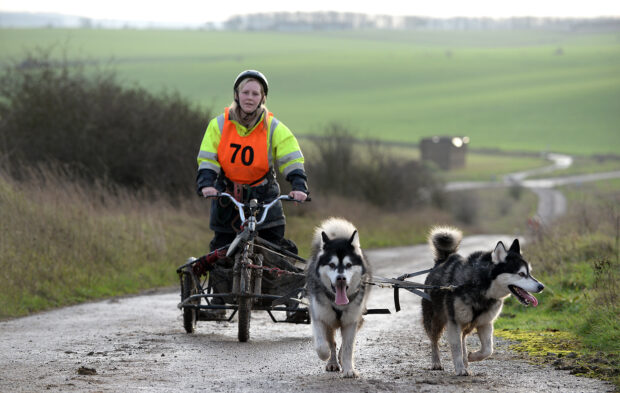Of note for Defence in this morning’s broadcast bulletins is reporting of the on-going fight between Iraqi troops and Daesh for Ramadi as the latter pursues counterattacks on the edge of the city.This morning's newspaper headlines focus mainly on the flooding in the north of the UK but, of note for Defence, is the Daily Star on Sunday’s front page which says that an SAS sniper has killed three Daesh leaders.
Iraq war – abuse inquiry
There is further follow up of a story in the Sunday Telegraph, the Sunday Times and the Sun on Sunday, that received widespread coverage yesterday – that British soldiers face being investigated until well into the next decade over allegations of abuse dating back to the Iraq war. The papers report that the head of the team set up by the MOD to investigate abuse admits that plans to end the inquiry by 2019 are now under review and that the Iraq Historic Allegations Team has received more than 700 fresh abuse claims in recent months, even though the inquiry is only looking at ill-treatment and unlawful killings between 2003 and 2009. Comments from former commander of British Forces in Afghanistan Colonel Richard Kemp also feature to say that most of the cases brought against UK soldiers had so far proved to be 'spurious'.
The Al-Sweady Inquiry shows that allegations of wrongdoing are not always true. However, it is right that all allegations are investigated and that those against whom there is evidence of criminal conduct are prosecuted. That is why the MOD established IHAT in 2010 to undertake independent investigations into allegations of criminality.
An MOD spokesperson said:
The vast majority of UK Service personnel deployed on military operations conduct themselves professionally and in accordance with the law. The MOD takes all allegations of abuse or unlawful killing extremely seriously. Where there is sufficient evidence, members of HM Forces can be prosecuted. It is estimated that the IHAT’s work will take until the end of 2019.
Daesh
The Daily Star on Sunday writes that an SAS sniper has shot through a wall and killed three Daesh bombers in Iraq, also managing to avoid a number of 'human shields' in the building.
The Sunday Times includes the forecast comments from Brigadier James Learmont, a deputy commander of the coalition in Iraq to say that British Army personnel have played a key role in the recent battle to recapture Ramadi by identifying Daesh targets and directing airstrikes. The paper makes clear that they are not fighting on the front line but suggests this is evidence of Britain’s deepening role in the conflict.
Britain's air campaign in Syria has been branded a 'non event' after it emerges that the RAF has carried out only one attack on the country in the last four weeks says the Sunday Telegraph. This is not the case – in Syria, RAF Tornado and Typhoon have conducted at least 10 successful strikes - dropping 21 Paveway IV guided bombs over the Omar oilfield – one of the most important to Daesh’s financial operations. We have also provided over 50 tonnes of non-lethal support, 40 heavy machine guns, nearly half a million rounds of ammunition and £600,000 worth of military equipment to the Kurdish Peshmerga.
The MOD’s statement is as follows:
To help keep the streets of Britain safe we must continue to attack Daesh in Syria as well as in Iraq but we have always been clear that this is a fight that will take time and patience. This is one battlefield, over a border that Daesh does not recognise and we continue to play a leading role in the counter-Daesh coalition in both countries – flying over 1700 missions, conducting over 430 strikes and providing over 60% of the coalition’s vital tactical intelligence which will be one of the key factors that ultimately destroys the terrorist organisation.
Army Reserves
The Sunday Express reports that Army reservist units are 'undermanned' with only one in 10 recruits turning up for duty. Here’s the MOD’s position:
We will look at concerns raised about attendance but reserve recruiting figures are very encouraging and show that we have turned a corner, with 8,500 recruited in the past year – up by 65% compared to the previous year.
Reservists are usually expected to complete a set number of training days a year, for which they receive a tax free payment, but we realise that successful military service also relies on the management of separate life demands.
We continue to improve the Reserve proposition, attracting and retaining Reservists by offering them a challenging and rewarding experience.

The Alaskan Malamute Working Association (AMWA) returned to the military training area on the Sunday 27th and Monday 28th December 2015 for its annual Working Dog Event, the Salisbury Plain Trek.
The event organiser, John Binding said: "Salisbury Plain is an ideal venue with its wide range of terrain and conditions. It is the perfect place to learn about the dogs' abilities and to work together as a team. The weather once more was ideal for our canine competitors".
The aim of the Trek is for the teams to earn their Working Dog Trek certificates, by completing those set confirmed mileages at an AMWA organised event.
Follow us on Twitter and don’t forget to sign up for email alerts.
